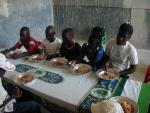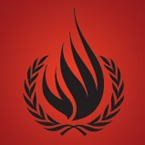 According to Dominican Today, the IDB approved a US$750,000 donation to support the development of the biofuels industry in the Dominican Republic, Haiti and El Salvador. Feasibility studies will be carried out by Brazil’s Getulio Vargas Foundation (FGV) within the framework laid out by the US-Brazil Initiative for Biofuels in Central America and the Caribbean.
According to Dominican Today, the IDB approved a US$750,000 donation to support the development of the biofuels industry in the Dominican Republic, Haiti and El Salvador. Feasibility studies will be carried out by Brazil’s Getulio Vargas Foundation (FGV) within the framework laid out by the US-Brazil Initiative for Biofuels in Central America and the Caribbean.
The "Reverse Peace Corps" Approach: Atlas Corps Seeks to Grow
 Peace Corps has the goals of exposing Americans to other cultures, exposing people of other cultures to Americans, and offering assistance whenever possible. But Peace Corps can't be called an exchange. When was the last time one of our colleagues was able to come to the United States via Peace Corps? For this reason, I was pleased to learn about a new organization called Atlas Corps which brings nonprofit leaders from the developing world to volunteer for one year in the U.S. Senator Harris Wofford serves on their Senior Advisory Board and has praised their innovative "reverse Peace Corps" approach towards development.
Peace Corps has the goals of exposing Americans to other cultures, exposing people of other cultures to Americans, and offering assistance whenever possible. But Peace Corps can't be called an exchange. When was the last time one of our colleagues was able to come to the United States via Peace Corps? For this reason, I was pleased to learn about a new organization called Atlas Corps which brings nonprofit leaders from the developing world to volunteer for one year in the U.S. Senator Harris Wofford serves on their Senior Advisory Board and has praised their innovative "reverse Peace Corps" approach towards development.









